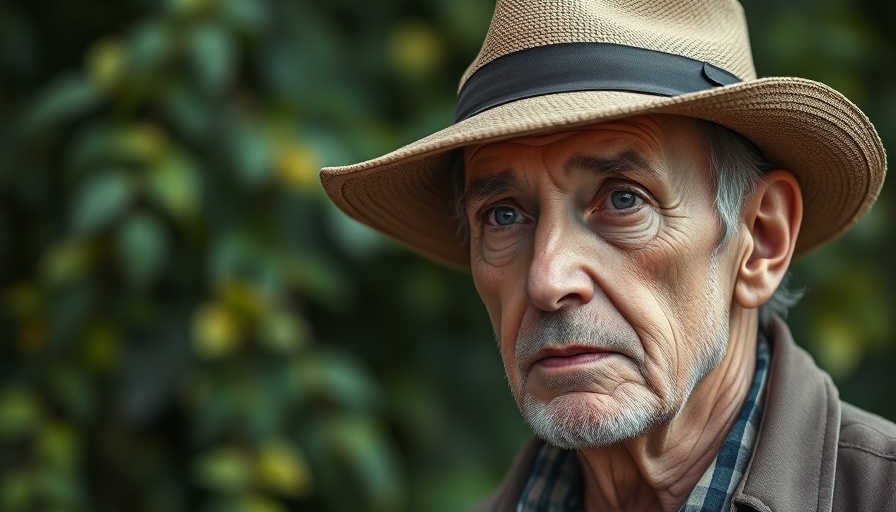
Doug Tallamy: The Gardener with a Mission
Douglas W. Tallamy, a prominent entomologist and professor at the University of Delaware, is a pivotal figure advocating for conservation through gardening. Central to Tallamy's philosophy is the urgent need to address the biodiversity crisis. With a career marked by numerous publications, his most recent book, How Can I Help?, is a compilation of responses to the 499 questions he has encountered during public talks, reflecting his dedication to educating the public on the importance of ecological gardening.
The Roots of Motivation: Conservation Over Decoration
Tallamy's journey into gardening stems not from aesthetic appeal but from a deep-rooted concern for the environment. He recalls his childhood experience of watching his beloved pond, bustling with wildlife, being destroyed. This early conservation lesson illustrates a vital understanding: gardening transcends the mere planting of flowers—it embodies an opportunity to restore and conserve natural habitats. As he articulates, "How do we use plants to achieve conservation? That becomes gardening." His perspective invites homeowners to explore nature-friendly practices that can be integrated into residential landscapes.
From Yards to Movements: The Homegrown National Park Initiative
Tallamy's philosophy extends beyond individual gardens; he founded the Homegrown National Park initiative, aiming to mobilize citizens to transform yards into refuges for wildlife. This grassroots movement emphasizes the power of local action in addressing global environmental issues. By encouraging individuals to incorporate native plants into their landscaping, Tallamy seeks to create interconnected habitats that bolster local ecosystems. Such efforts can lead to significant improvements in biodiversity, helping to counteract the devastating effects of habitat loss.
Practical Insights for Eco-conscious Gardeners
For those looking to follow in Tallamy's footsteps, practical advice can transform their home landscapes into wildlife sanctuaries. Here are some actionable insights:
- Choose Native Plants: Opt for plants that naturally occur in your region, as they support local wildlife better than non-native species.
- Minimize Chemical Use: Reduce or eliminate pesticides and herbicides, which can harm beneficial insects and wildlife.
- Create Diverse Habitats: Incorporate a variety of plants with different blooming times to provide year-round resources for pollinators and other wildlife.
Challenging Preconceptions: Gardening as Restoration
One pervasive misconception is that gardening is solely about aesthetics or ornamental landscapes. However, Tallamy challenges this notion by emphasizing the ecological function of gardens. His work suggests that even small changes at a residential scale can lead to powerful outcomes, creating environments where flora and fauna can thrive. This shift in mindset could profoundly influence how communities perceive their outdoor spaces, encouraging a move towards restoration rather than mere decoration.
How Your Gardening Choices Can Make a Difference
Every decision made in the garden has an impact on local ecology. Homeowners are urged to examine their landscaping choices critically. By consciously opting for biodiversity-friendly practices and actively participating in conservation, they contribute to a larger movement aimed at healing the planet. Through education, like that offered by Tallamy, and practical application of his concepts, individuals can make profound impacts not only in their own backyards but also in the health of the greater environment.
Empowering Through Knowledge: The Value of Community Engagement
Raising awareness about the importance of biodiversity and conservation is crucial. Gardening initiatives that emphasize community engagement allow participating homeowners to share knowledge, resources, and success stories. These collaborative efforts foster a sense of community while creating informative networks dedicated to ecological stewardship.
A Call to Action: Transform Your Yard Today
Ready to make a difference? Start by assessing your garden's ecological footprint. Consider participating in a local gardening club or following Doug Tallamy's teachings to turn your landscape into a vibrant ecosystem. The more homeowners commit to ecological gardening, the larger the collective impact will be on our environment. Join the movement to restore biodiversity; every small change counts!
 Add Row
Add Row  Add
Add 




Write A Comment